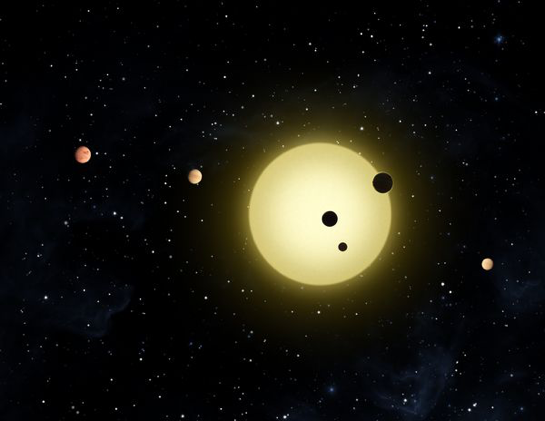Astronomers Find Exoplanet Three Times More Massive Than Jupiter

KEY POINTS
- Astronomers discover an exoplanet three times more massive than Jupiter
- Planets of Kepler 88 system orbit their host star regularly
- Kepler 88 d might be responsible for the orbits of other planets in the system
Astronomers have discovered a new exoplanet that’s about three times more massive than Jupiter, which is the largest planet in the Solar System. According to the astronomers, the new exoplanet is currently the largest object in its own star system.
The remarkable discovery was made at the W. M. Keck Observatory on Maunakea in Hawaii. Details of the discovery were presented in a study published in the Astronomical Journal.
The astronomers came across a new exoplanet after studying the data collected by the observatory for six years on a star system known as Kepler 88. This system is quite well-known within the scientific community due to its exoplanets Kepler 88 b and Kepler 88 c.
According to previous reports, these two exoplanets orbit their host star in a clockwork-like manner. Kepler 88 b, which is slightly smaller than Neptune, completes its orbit around the host star in 11 days. Kepler 88 c, on the other hand, which is about as massive as Jupiter, completed its cycle around the star in 22 days.
It was initially believed that Kepler 88 c’s massive size was responsible for the stable orbits of the exoplanets within the system. Recently, however, astronomers came across a much bigger exoplanet. The new discovery, known as Kepler 88 d, is about three times more massive than Jupiter.
In Earth’s neighborhood, Jupiter keeps the cosmic balance due to its massive size and powerful gravitational pull. In the Kepler 88 system, astronomers believe that the exoplanet Kepler 88 d maintains the same kind of order for all the other cosmic objects.
According to Lauren Weiss, a postdoctoral fellow at the University of Hawaii Institute for Astronomy and lead author of the study, Kepler 88 d is most likely responsible for the orbits and behavior of the other planets in the Kepler 88 system.
“At three times the mass of Jupiter, Kepler-88 d has likely been even more influential in the history of the Kepler-88 system than the so-called King, Kepler-88 c, which is only one Jupiter mass,” she said in a statement. “So maybe Kepler-88 d is the new supreme monarch of this planetary empire - the empress.”
© Copyright IBTimes 2025. All rights reserved.





















